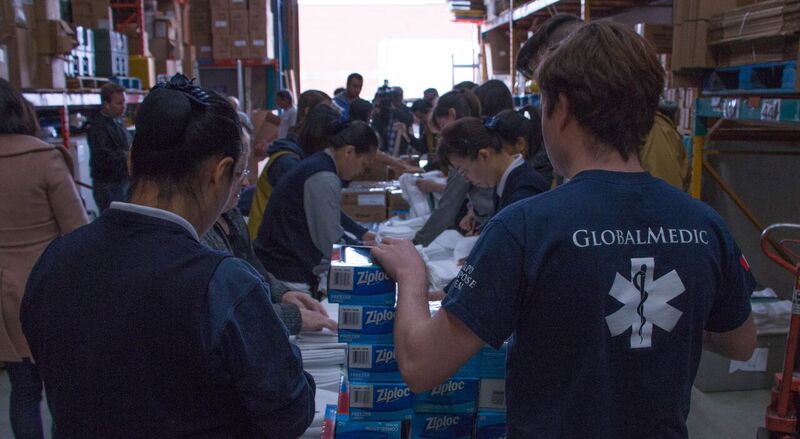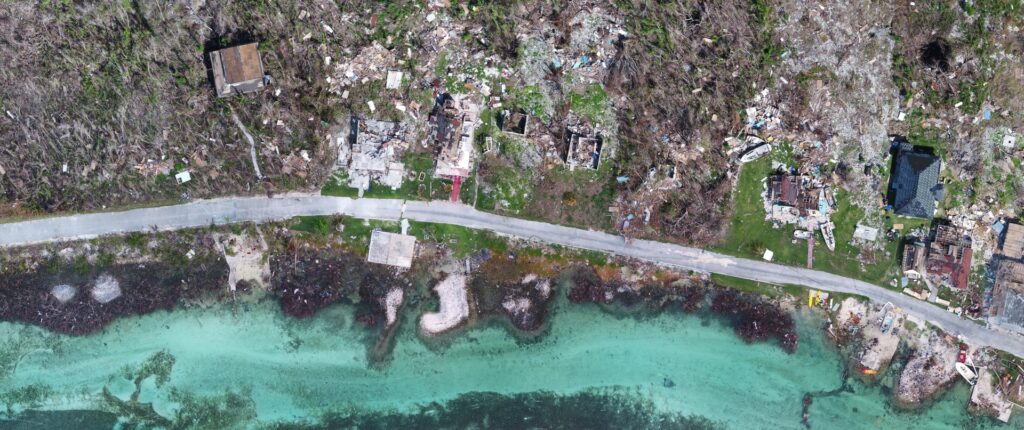
Kaitlin Waters – Communications Intern
World Humanitarian Day (WHD) is held every year on August 19, to pay tribute to aid workers who risk their lives in humanitarian service, and to rally support for people affected by crises around the world. GlobalMedic also tributes WHD as the day that we all collectively recognize humanitarian personnel and their efforts, as well as the rising climate crisis.
GlobalMedic was founded on emergency response and humanitarianism. While we run many non-emergency and capacity-building programs, most of our work continues to be critical intervention in the wake of disaster and crisis. WHD is the day we get to reflect with our global community on all the hard work we’ve collectively done over the years.
A Bit of History on World Humanitarian Day
World Humanitarian Day was established by the United Nations General Assembly to commemorate the death of Sergio Vieira de Mello and 21 of his fellow humanitarians in a bombing of the Baghdad headquarters of the UN in 2003. The United Nations General Assembly formalized the day as World Humanitarian Day in 2009. Each year WHD focuses on a theme, and last year’s theme was paying special tribute to the real-life heroes who have committed their lives to help others in the most extreme circumstances around the world, in response to the COVID-19 pandemic. This year WHD is highlighting “the immediate human cost of the climate crisis by pressuring world leaders to take meaningful climate action for the world’s most vulnerable people (UN, 2021).”
What’s so Important About This Year’s Theme?
Over the years, it has become more widely understood that climate change and climate emergencies have immediate consequences on the world, especially to the most vulnerable. This year’s WHD is focused on highlighting these consequences and ensuring that the voices of vulnerable people are heard. With the UN Climate Change Conference (COP26) in November, this theme is set to accelerate action towards the goals of the Paris Agreement and the UN Framework Convention on Climate Change. In hopes that the COP26 world leaders not only talk about climate change but also what nations are planning to do to tackle it.
#TheHumanRace is not just about raising awareness or the COP26 conference, it’s about no longer standing on the sidelines, and entering the race against climate change. GlobalMedic has been a part of #TheHumanRace and operating in disasters and conflicts for almost 20 years. Within our years of operation we’ve noticed that the needs are only continuing to increase and as a global community, we need to be aware of some of these consequences.
“The climate crisis doesn’t affect everyone equally. People in vulnerable communities are already losing their homes, their livelihoods, and their lives”
UN, 2021
What GlobalMedic Does to Combat Climate Emergencies
During my summer internship, I’ve learned about the wide array of programs and responses that operate within GlobalMedic. From the Water, Food, Flood, Medical, Shelter, and drone RescUAV programs, GlobalMedic is diversified and modular in any humanitarian situation, both domestically in Canada and abroad to help people in need.
GlobalMedic’s responses are usually in conjunction with humanitarian crises and consistent climate disruption. Hurricanes, forest fires, droughts, and floods have been increasingly prevalent in day-to-day life and have become more severe due to the continuous strain we put on our environment. Climate change is a top driver of humanitarian need and human suffering, particularly for the poorest countries. The impacts threaten to deepen already wide inequalities, resulting in consequences felt by the world at large, including instability, violence, and displacement. The climate crisis is a humanitarian crisis.
Below are some responses GlobalMedic runs in conjunction with the climate change and humanitarian crisis:
Forest Fires
Forest fires have been increasing dramatically, as climate change is leading to longer, harsher droughts and more extreme weather events. In early 2020, we witnessed this through the massive forest fires that blazed through Australia, an event that heightened our awareness of the impacts we have on our environment.
GlobalMedic responded to the wildfires here in Canada from Fort McMurray in 2016, British Columbia in 2017, and Alberta in 2019. GlobalMedic is also on standby with the forest fires spreading across Canada this year, and even more alarmed that forest fires have broken out in other parts of the world like the Mediterranean. Our responses are built upon the resources, support, and capacity to manage the emergency. However, with increased fluctuation in both the intensity and amount of forest fires, and natural disasters in general, many organizations must prepare for an increased strain on their operations, and the people being affected.
Time is already running out for the world’s most vulnerable people — those who have contributed least to the global climate emergency yet are hit the hardest, and millions of others are already losing their homes, their livelihoods, and their lives.

Hurricanes
Climate change has increased tropical cyclone intensity, rainfall, and storm surges. We can see these increased intensities through Hurricane Dorian 2019, and Hurricanes Eta and Iota that hit the same areas back-to-back at the end of 2020 — both of which GlobalMedic responded to. With hurricanes and tropical storms becoming more severe, GlobalMedic wants to highlight the immediate consequences of the climate emergency for the world’s most vulnerable people. We as a global community need to stand in solidarity with the needs of climate-vulnerable people and make sure their voices are heard.
Hurricane Dorian 2019 was an extremely powerful and catastrophic Category 5 Atlantic hurricane, which became the most intense tropical cyclone on record to strike the Bahamas and tied for the strongest landfall in the Atlantic basin. It is also regarded as the worst natural disaster in the Bahamas’ recorded history. 43 people were killed and over 76,000 people were affected by the storm. With the damage so extensive, people in the Bahamas were in immediate need of clean water, food, and shelter items. Immediately following the storm, GlobalMedic deployed our Rapid Response Team with several aid responses and the RescUAV Team with drones to provide on-the-ground assistance. Though GlobalMedic may have alleviated the humanitarian emergency within the area, we cannot help but reflect that this is a worldly by-product of environmental negligence.

#TheHumanRace
Because of everyone’s increased struggle in combating the effects of climate change, this year’s theme is aimed at increasing awareness, action, and vocalization of climate change. Join GlobalMedic and other humanitarian leaders and organizations in their efforts. May it be volunteering, donating, or becoming an environmental advocate in your day-to-day life, one thing is for certain, #TheHumanRace has already started, and we are not too far behind to catch up!
Click to find out more about World Humanitarian Day, GlobalMedic’s Hurricane Dorian response as well as our other programs, and how you can be a part of #TheHumanRace!

